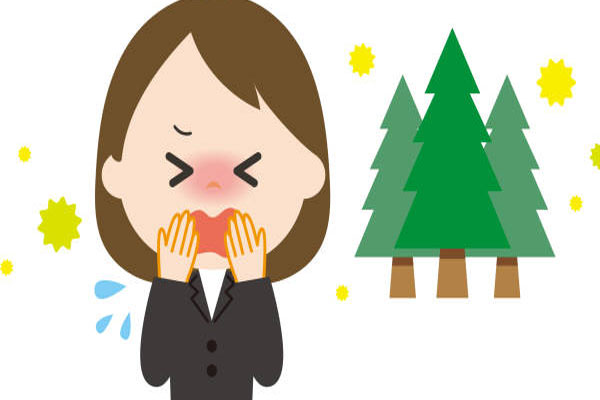How to Cope with Seasonal Allergies?
Discover how to conquer seasonal allergies and enjoy the changing seasons without sneezing and itchy eyes Learn about common triggers, symptoms, and effective management strategies in this comprehensive guide
Seasonal allergies, often referred to as hay fever or allergic rhinitis, can cast a shadow over the beauty of spring and the joy of summer. The arrival of these beloved seasons is often met with dread by individuals who find themselves battling the sneezing, itchy eyes, and runny noses that accompany pollen, mold, grass, and tree allergens. Understanding seasonal allergies is the first step in learning how to cope with them effectively. This article will guide you through the basics of seasonal allergies, including their common triggers, symptoms, diagnosis, and management. Whether you're a seasonal allergy veteran or just beginning to experience these unwelcome visitors, we've got the information you need to enjoy the changing seasons more comfortably.

Seasonal allergies, often referred to as hay fever or allergic rhinitis, can cast a shadow over the beauty of spring and the joy of summer. The arrival of these beloved seasons is often met with dread by individuals who find themselves battling the sneezing, itchy eyes, and runny noses that accompany pollen, mold, grass, and tree allergens. Understanding seasonal allergies is the first step in learning how to cope with them effectively. This article will guide you through the basics of seasonal allergies, including their common triggers, symptoms, diagnosis, and management. Whether you're a seasonal allergy veteran or just beginning to experience these unwelcome visitors, we've got the information you need to enjoy the changing seasons more comfortably.
How to Cope with Seasonal Allergies?
Understanding Seasonal Allergies
Before we dive into coping strategies, it's essential to grasp what seasonal allergies entail. Seasonal allergies, also known as hay fever or allergic rhinitis, are allergic reactions triggered by specific environmental factors during certain times of the year. These allergies are often linked to the presence of allergens such as pollen, mold, grass, and tree particles in the air. Understanding the root causes of these allergies is the first step in effectively managing them.
Common Seasonal Allergy Triggers
Several environmental factors can trigger seasonal allergies. Understanding these common allergens is crucial for effective allergy management. The most prevalent triggers include:
1. Pollen Allergies
Pollen from trees, grasses, and weeds is a common cause of seasonal allergies. We'll explore the different types of pollen and when they are most likely to affect individuals.
2. Mold Allergies
Mold spores, which thrive in damp environments, can be a significant allergy trigger. We'll discuss the types of molds that commonly cause allergies and how to reduce exposure.
3. Grass Allergies
Grass pollen is another common culprit in seasonal allergies. We'll examine the characteristics of grass allergies and ways to cope with them.
4. Tree Allergies
Various tree species release pollen that can trigger allergies during specific seasons. We'll identify the trees responsible and the regions where these allergies are most prevalent.
Symptoms of Seasonal Allergies
Recognizing the symptoms of seasonal allergies is key to managing and seeking appropriate treatment. Common symptoms of seasonal allergies include:
1. Nasal Symptoms
Seasonal allergies often manifest with nasal symptoms like sneezing, runny or stuffy nose, and itching. We'll delve into these symptoms and their causes.
2. Eye Symptoms
Allergic reactions can affect the eyes, leading to symptoms such as redness, itching, and watery eyes. We'll explore the eye-related aspects of seasonal allergies.
3. Skin Symptoms
Itchy skin, hives, or other skin reactions can also be triggered by seasonal allergies. We'll discuss these skin-related symptoms and how to alleviate them.
Diagnosing Seasonal Allergies
Proper diagnosis is essential for effective allergy management. Diagnosing seasonal allergies typically involves the following methods:
1. Allergy Testing
Allergy testing, including skin tests and blood tests, can help identify specific allergens responsible for your seasonal allergies. We'll discuss the types of tests and their accuracy.
2. Medical Evaluation
A medical evaluation by an allergist or healthcare provider can aid in diagnosing seasonal allergies. We'll explore the importance of medical assessment and what to expect during the evaluation process.
Managing Seasonal Allergies
Effective management of seasonal allergies is crucial for improving your quality of life during allergy seasons. Various strategies can help mitigate allergy symptoms and provide relief. These strategies include:
1. Medications
Medications, such as antihistamines, decongestants, and corticosteroids, can provide relief from allergy symptoms. We'll explore the different types of allergy medications and how they work.
2. Allergen Avoidance
Avoiding allergens that trigger your seasonal allergies is a fundamental part of managing the condition. We'll provide tips and guidance on reducing your exposure to common allergens.
3. Immunotherapy
Immunotherapy, including allergy shots and sublingual tablets, can help desensitize your immune system to allergens, reducing your body's response. We'll discuss how immunotherapy works and its effectiveness in managing seasonal allergies.
Frequently Asked Questions About Coping with Seasonal Allergies
Frequently Asked Questions About Coping with Seasonal Allergies
Q1: What are seasonal allergies, and how do they differ from other allergies?
A1:Gain insights into the nature of seasonal allergies and how they differ from year-round allergies.
Q2: What are the most common triggers for seasonal allergies?
A2:Explore the primary environmental factors responsible for seasonal allergies and when they are most prevalent.
Q3: How can I tell if my symptoms are due to seasonal allergies or a cold?
A3:Learn to distinguish between seasonal allergy symptoms and those of common respiratory infections.
Q4: Are there effective over-the-counter remedies for seasonal allergies?
A4:Discover the over-the-counter options available for managing seasonal allergy symptoms.
Q5: When should I seek professional medical help for my seasonal allergies?
A5:Understand the signs that indicate the need for professional medical evaluation and treatment.
Q6: Can I develop seasonal allergies later in life, even if I didn't have them as a child?
A6:Find out if it's possible to develop seasonal allergies at any age and why this might occur.
Q7: Are there natural remedies and lifestyle changes that can help manage seasonal allergies?
A7:Explore natural and lifestyle-based approaches for reducing the impact of seasonal allergies.
Q8: What is the role of immunotherapy in treating severe seasonal allergies?
A8:Learn about the effectiveness of immunotherapy, including allergy shots, in managing severe seasonal allergies.
Previous: first page
